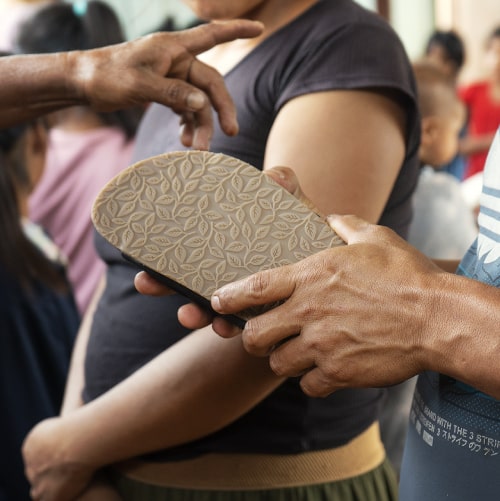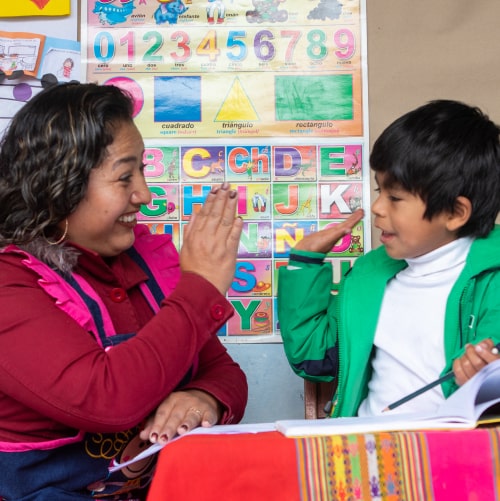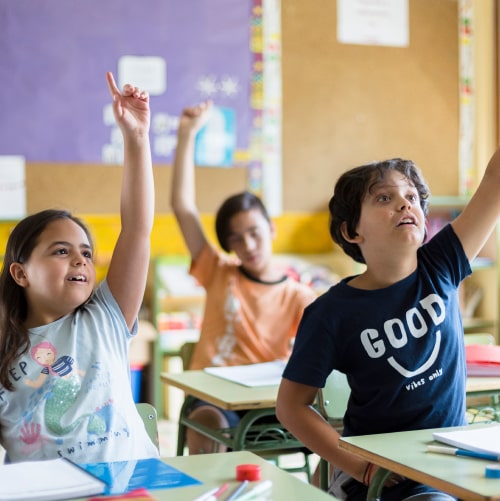We are proud to present Empanacombi as one of the companies selected for the Due Diligence stage of the Entrepreneurial Fund, stage in which each finalist endeavor, together with the fund team, develops a business plan and a financing scheme to then submit them to the evaluation of the Investment Committee, which will finally select the endeavors that will make up the first portfolio of the Wiese Foundation Entrepreneurial Fund.
What is Empanacombi?
Empanacombi is a culinary social business that promotes the labor inclusion of chefs with disabilities.
Its tasty pasties and other artisanal products are made in the country’s first inclusive kitchen for people with disabilities. It is a space adapted to enhance the performance of youngsters with various diagnoses (hearing disability, mild retardation, Down syndrome and autism) that incorporates reasonable adjustments designed from the principles of inclusive design.
Under this concept Carlos Esteban Sánchez Ramírez and Cinthya Rodríguez work. They are leaders of this social endeavor that supports people with disabilities.
Constitution of Empanacombi as a company
Empanacombi turns 7 in November and the business idea arises because Cinthya Rodríguez wanted to do something meaningful for her sister with Down syndrome. Therefore, she worked on a business model that may offer decent work to people with disabilities to turn them into productive and fulfilled human beings.
Cinthya tells us that when they started the business, they made focus groups to identify the flavors of pasties they were going to market. Now she understands that her business model not only serves so that they can sell pasties, but also they can handle juice bars, cevicherias and any other business where people with disabilities are included.
Social and environmental objectives
Cinthya tells us that there are many prejudices and barriers to break: “For anyone there is a risk of cutting himself/herself in a kitchen, of burning. Many entrepreneurs think that by hiring people with disabilities, these risks will increase. But we in 7 years have already shown that this is not the case”.
For his part, Carlos indicates that “entrepreneurs believe that the costs are very high and that much is invested in adaptive furniture.” However, both state that the changes are minimal and can guarantee profitability. Empanacombi currently has a 50% labor quota of workers with disabilities and they want to keep that figure in the future.
Carlos states that the salaries of people with disabilities represent an income for the family basket that previously would have been unthinkable. The impact generated by Empanacombi translates into half a million soles that this social business has generated in salaries. Although they still have the challenge of being able to generate more labor inclusion and encourage other culinary companies to do so too.
In the environmental aspect, they have eradicated 90% of the use of plastics and are using biodegradable and compostable packaging at their points of sale. They have always used recycled paper bags and lacerated paper for food. They also work on oil recycling with a transnational company that transforms this element into energy. In addition, they eliminate all waste through the culinary recycling technique guided by the Ccori organization, by chef Palmiro Campo, who teaches them to make the most of all their inputs.
Financial sustainability
Empanacombi is a sustainable company thanks to its different business units: they sell their products to other businesses such as gas station chains, coffee shops and gourmet stores. They also have their own points in shopping centers and offer catering services, prepared and served by people with disabilities.
Each business unit has a different language, a different way of promoting and a different logistics. Carlos mentions that “there are days in which corporate sales sustain the business when in the points of the shopping centers we are not doing so well, and so somehow, it balances the finances. The same happens with catering services, which this year have grown much more with important sales.” He adds that the strategy is to detect those actions in which they may have greater margin and at the same time communicate their value proposal.
First allies
Social endeavor leaders say they have the feeling that Empanacombi will climb very soon because they have many alliances to close. In addition, part of its growth is due to large companies that are committed to the social issue and organizations such as the International Labor Organization (ILO), as well as initiatives of professionals who have carried out volunteer work.
Challenges
Cinthya states that “there are all kinds of barriers, we talk about the paradigms and that we are competing in a very aggressive market in terms of commercial issues. We believe that there are companies that are very open, such as Repsol, to have a supplier of pasties made by people with disabilities and only put those products in their gondolas, but there are companies that do not see it that way”. For his part, Carlos states that the barriers have helped them to grow and that the key factor in the success of social businesses consists in being competitive.
Wiese Foundation Entrepreneurial Fund
Cinthya and Carlos tell us that it is the first time that they are in a Due Diligence process and that this process has helped them to order themselves regarding the financial and legal information they manage about their company. They claim that they are at 80% with all the required information, but that there are some things that they still have to solve.
They mention that they presented themselves to the Entrepreneurial Fund because they needed to grow, because they have different offers. With this program they could also order their company in quantitative terms and be attractive to investors.
Learn more about Empanacombi, its products, its services and its impact at www.empanacombi.com








